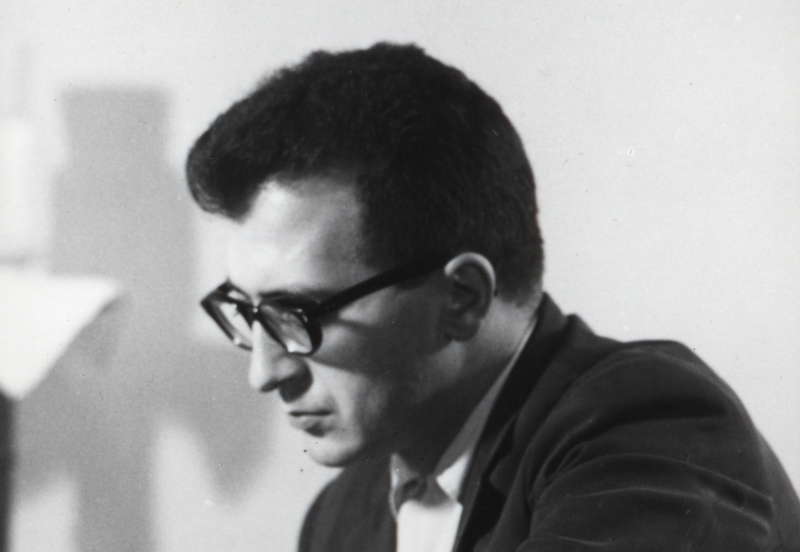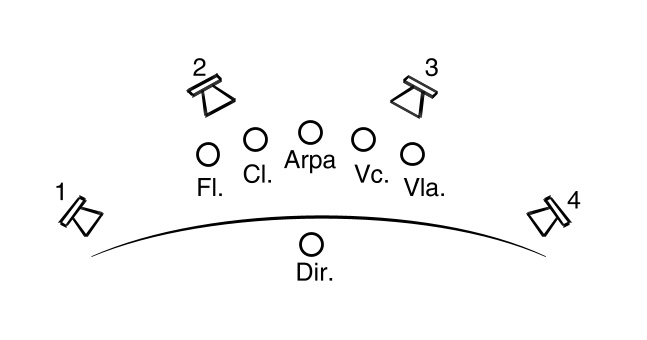Luciano Berio: Différences
Rehearsal & performance, recital-lecture & workshop with Angela Ida De Benedictis, Ulrich Mosch, Kilian Schwoon and participants of the Darmstadt Summer Course

Recital-Lecture & Performance
Luciano Berio celebrates his 100th birthday this year. But this is not the only reason why it is worth taking a look at his diverse oeuvre. As part of the Darmstadt Summer Course 2025, the focus will be on his composition Différences (1958-59) for five instruments (flute, clarinet, harp, viola, cello) and stereophonic tape, which was performed in Darmstadt in 1961 by the International Kranichstein Chamber Ensemble under Bruno Maderna’s direction.
As part of a recital lecture with Angela Ida De Benedictis (Paul Sacher Stiftung Basel | Centro Studi Luciano Berio) on the work and the aspect of “tape playback”, Différences will be performed twice. The ensemble will be made up of performers registered for the Darmstadt Summer Course.
Musical Direction: Lena Yeeun Oh & Konstantinos Vallios
Sound Projection: Kilian Schwoon

Workshop
At the end of the 1950s, aesthetics and technology were ready – music recorded on tape met live instruments in concert. Whether Bruno Maderna’s Musica su due dimensioni (1958; a first version was created as early as 1952), Karlheinz Stockhausen’s Kontakte (1958–60) or Luciano Berio’s Différences (1958–59): In new works that have long since become classics of New Music, similarities in sound were heard and differences explored while the possibilities of reproduction were still in their infancy.
In their workshop, Angela Ida De Benedictis (Paul Sacher Stiftung Basel | Centro Studi Luciano Berio), Ulrich Mosch (Université de Genève) and Kilian Schwoon (Hochschule für Künste Bremen | Tempo Reale Florence) will provide an insight into the existing sources of Différences for five instruments (flute, clarinet, harp, viola, violoncello) and stereophonic tape, thus tracing the conditions under which a fascinating chapter of European music history came into being. The workshop aims to sensitize musicians to a more conscious performance practice and to contribute to a deeper understanding of the interpretation process by examining the underlying sources and materials.
The workshop sessions on 28 July (13.30–16.30) and 1 August (13.30-16.30) are open to interested participants of the Darmstadt Summer Course.